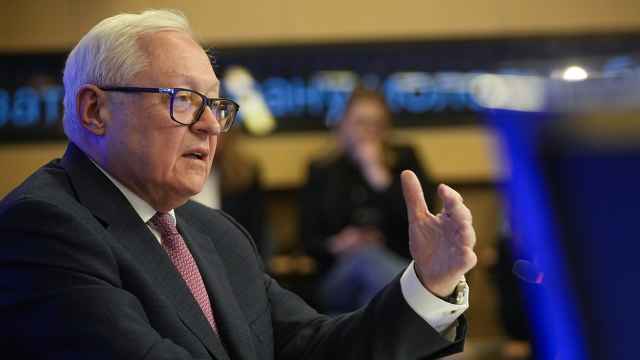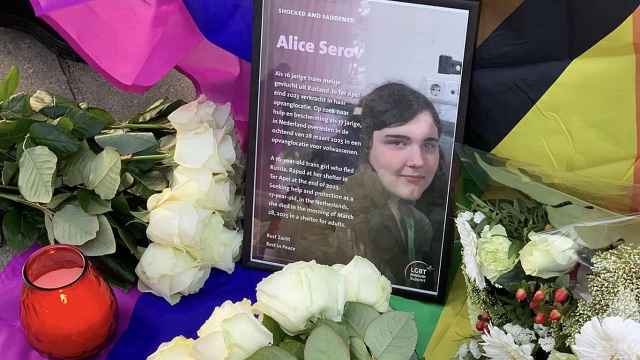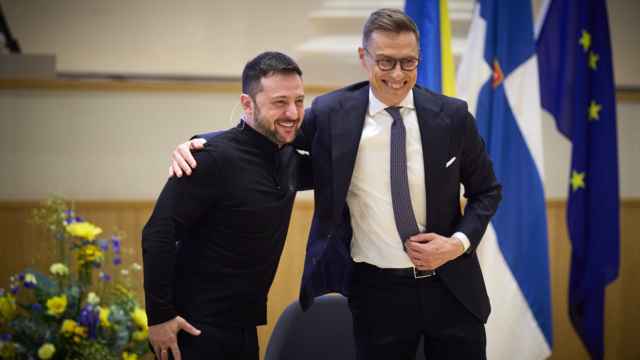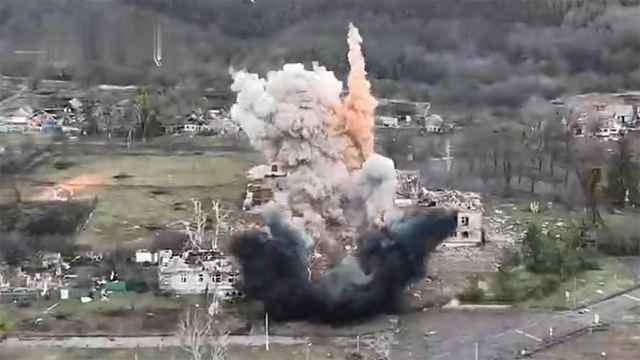Russia's most famous opposition leader, Alexei Navalny, has come under unprecedented pressure as the Investigative Committee opens one criminal case after another against him. Among them is a rather important case concerning Yves Rocher.
Here's the case in a nutshell: Navalny's brother, Oleg, works for Russian Post and once owned a delivery and logistics company called GPA. The company handled logistics for Yves Rocher goods delivered from Yaroslavl to Moscow. GPA found a separate trucking company that hauled meat from Moscow to Yaroslavl and signed a contract so that it would haul Yves Rocher freight on the return trip to Moscow.
It was a win-win situation. The freight company avoided running an empty truck in one direction and earned 31 million rubles ($1 million) for its work. Yves Rocher paid less for shipping than it would have if it had chartered an exclusive truck, and Oleg Navalny earned 55 million rubles ($1.8 million) from 2008 to 2011 on commissions. This is called logistics in the business world. But the Investigative Committee calls it robbery and claims that Oleg Navalny stole the money — all 55 million rubles.
The Investigative Committee says Oleg Navalny used his administrative resources to pressure Yves Rocher into using the services of his company, GPA. That is absurd, considering that Yves Rocher distributes its products by mail and is one of the largest clients of Russian Post. It is more likely that the authorities threatened Yves Rocher with delivery problems unless it signed an incriminating statement denouncing Oleg Navalny.
In any case, pro-Kremlin television station NTV gleefully reported that Yves Rocher Vostok head Bruno Leproux submitted a formal complaint that his firm had "been victimized by a criminal scheme developed by the opposition member and his brother."
The Investigative Committee did not raise any objections to that report. But when Novaya Gazeta published an article by Irek Murtazin headlined "Yves Rocher Puts 3 million Trees Into Russian Soil and 2 Navalny Brothers Behind Bars," the Investigative Committee threatened the journalist with criminal prosecution.
The French company never once publicly explained how those terrible Navalny brothers forced it to ship its freight from Yaroslavl to Moscow for three straight years. Yves Rocher made no statement after Murtazin's article was published, and a scandal erupted in the blogosphere in which bloggers called for a boycott of Yves Rocher.
Whatever the reason, Yves Rocher now finds itself in an unenviable position. It is difficult to say whether its sales will drop considerably as a result of the blogger boycott, but Leproux's actions have tarnished its reputation so badly that it will take more than industrial-strength makeup remover to help it come clean.
Opposition leader Boris Nemtsov, who was summoned by the Investigative Committee to testify against Navalny in another criminal case, said that the whole affair is a "contract hit" against Navalny based on "absurd allegations." As we see, Leproux has taken a very different path, and it looks as if Yves Rocher is helping a corrupt authoritarian regime to jail an innocent opposition leader. As Russian bloggers put it, Investigative Committee head Alexander Bastrykin has effectively become the new face of Yves Rocher.
A little warning to Yves Rocher consumers: Every time you spread their creams on your face, a little dirt from Russia's Investigative Committee will come off on your skin.
Yulia Latynina hosts a political talk show on Ekho Moskvy radio.
A Message from The Moscow Times:
Dear readers,
We are facing unprecedented challenges. Russia's Prosecutor General's Office has designated The Moscow Times as an "undesirable" organization, criminalizing our work and putting our staff at risk of prosecution. This follows our earlier unjust labeling as a "foreign agent."
These actions are direct attempts to silence independent journalism in Russia. The authorities claim our work "discredits the decisions of the Russian leadership." We see things differently: we strive to provide accurate, unbiased reporting on Russia.
We, the journalists of The Moscow Times, refuse to be silenced. But to continue our work, we need your help.
Your support, no matter how small, makes a world of difference. If you can, please support us monthly starting from just $2. It's quick to set up, and every contribution makes a significant impact.
By supporting The Moscow Times, you're defending open, independent journalism in the face of repression. Thank you for standing with us.
Remind me later.





